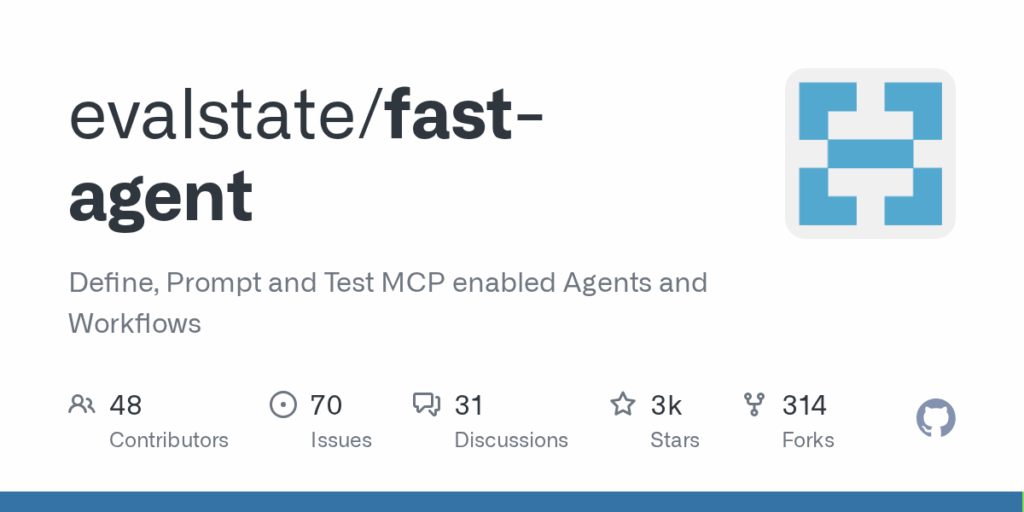fast agent
Basic Information
fast-agent is a Python framework for rapidly creating, composing and running sophisticated AI Agents and Workflows that integrate with MCP (Model-Client-Provider) servers. It provides a declarative syntax to define agents, chains and other workflow constructs in simple files so prompts, configurations and version control are straightforward. The project includes end-to-end tested MCP feature support including Sampling and conversion of MCP tool results, and it natively supports multiple LLM backends such as Anthropic, OpenAI and Google as well as additional providers via TensorZero. Multimodal inputs (images and PDFs) are supported and agents can request human input during execution. The repository provides a CLI and examples, an interactive shell, and configuration conventions (fastagent.config.yaml and fastagent.secrets.yaml) to manage servers, models and secrets for local and remote MCP usage.








